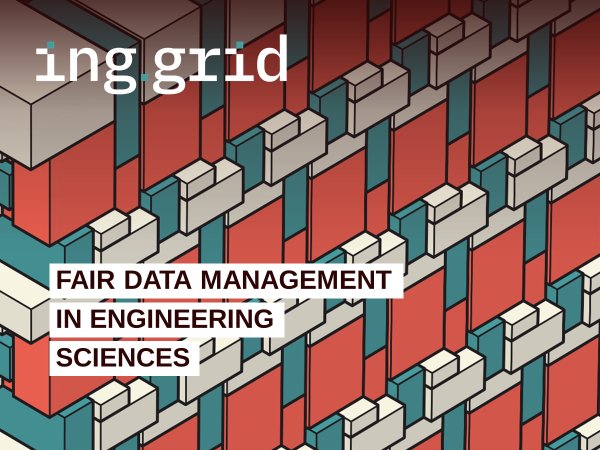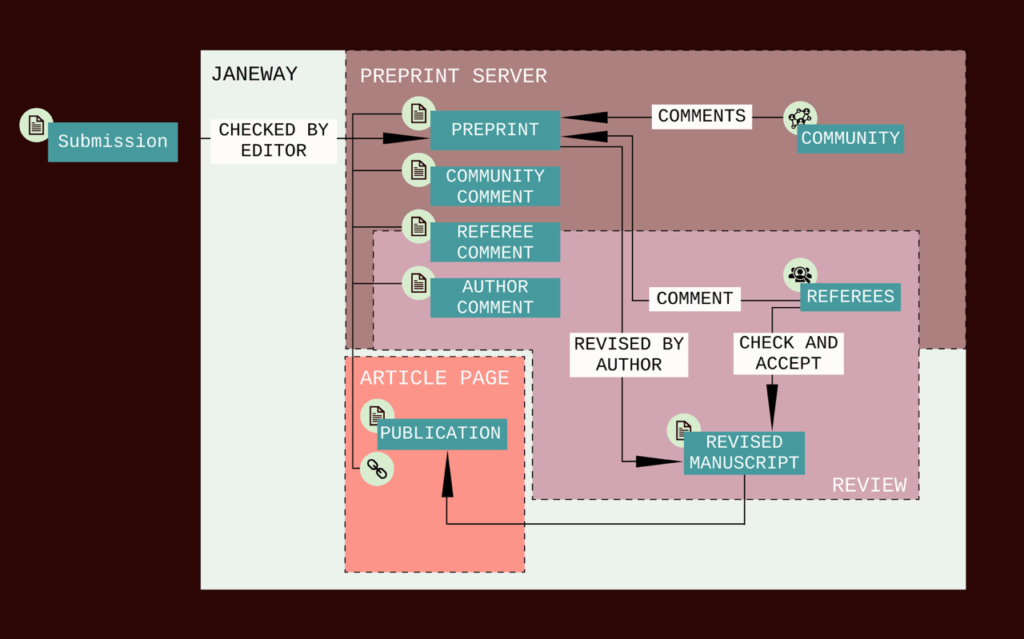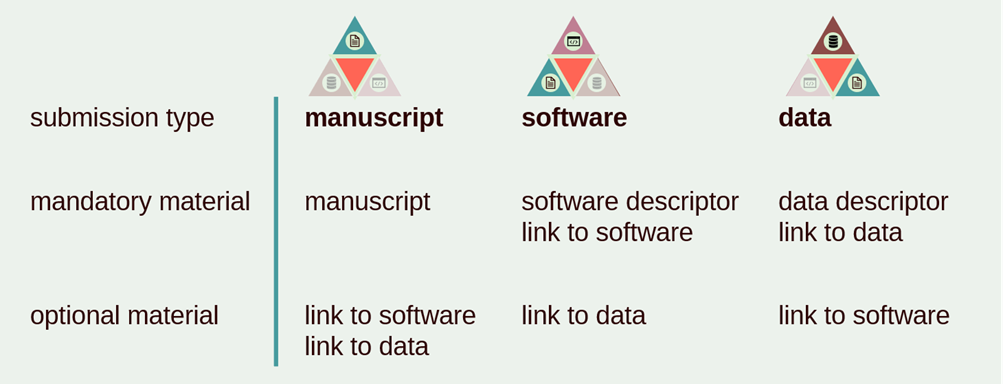Detailed description of the service
Although the RDM community in engineering sciences has been growing, a recognised venue for RDM as a subject of research was missing before NFDI4ING started. Simultaneously, possibilities to obtain academic credit for RDM were lacking. To address these issues, the journal ing.grid – FAIR Data Management in Engineering Sciences was established. ing.grid is an innovative, scholarly-led Diamond Open Access journal. Using open-peer-review, it is a platform for sharing and discussing RDM approaches in the field of engineering sciences. The journal runs on the open-source platform Janeway. ing.grid accepts manuscript submissions as well as open access datasets and open source software and is dedicated to the principles of Open Science. The journal is backed by a strong international editorial board consisting of RDM experts and pioneers from the NFDI4ING and beyond.
ing.grid functions as an open, discipline-specific platform for publishing, reviewing and discussing research data management in engineering sciences in a transparent and academically recognised way.
Target audiences include researchers, engineers, data stewards, and practitioners working with research data, as well as reviewers and readers interested in FAIR-aligned scholarly communication.
ing.grid is part of a growing movement for accessibility and transparency in scientific publishing, that is gaining momentum since 2019. Compared to other journals, ing.grid incorporates the FAIR principles directly in its review guidelines. Recognising its contribution to the open access movement, ing.grid was shortlisted among the 4 Best Infrastructure Initiatives in the Enter Award 2024.
Terms of use & restrictions
ing.grid is open to the RDM community in the engineering sciences and beyond. All articles are open access, licensed under CC BY 4.0 (cf. open access policy). Reading articles and review comments is publicly accessible. For posting a community comment, an account on the ing.grid website is required. Users may also register as reviewers in case they are open to contributing to the review process as invited experts. Submitting authors are also required to create a user account. All users must comply with the publication ethics as well as the code of conduct as defined on the ing.grid website. As a diamond open access journal, ing.grid charges neither readers nor publishing authors.
Contact
References
publications that reference (or report on using) the service:
Kleinhans, Agnes, Logan, Kevin; Leštáková, Michaela; Pelz, Peter F. (2025): Bridging the Troubled Waters of Peer Review with ing.grid: Towards Openness, Fairness and F.A.I.R.-ness, in Heuveline, Vincent et al. (Hrsg.): E-Science-Tage 2025: Research Data Management: Challenges in a Changing World, Heidelberg: heiBOOKS, DOI: https://doi.org/10.11588/heibooks.1652.c23942
Silva Pimenta, Izadora; Logan, Kevin; Leštáková, Michaela; Pelz, Peter F.; Günther, Anne-Christine; Kerekes, Matthias; Kraußold, Sebastian (2023): Open Peer Review for a Transparent and Engaging Scientific Environment: Towards a FAIR Journal. The Lower Decks. A Symposium on Janeway and Open Access Publishing, London, United Kingdom, 07.-08.09.2023, DOI: https://doi.org/10.26083/tuprints-00024577
Logan, Kevin; Silva Pimenta, Izadora; Leštáková, Michaela; Pelz, Peter F. (2023): A FAIR Future for Engineering Sciences – Linking an RDM Community through a Scientific Journal. 1st Conference on Research Data Infrastructure (CoRDI), Karlsruhe, Germany, 12.-14.09.2023. 10.26083/tuprints-00026332
Silva Pimenta, Izadora; Logan, Kevin; Leštáková, Michaela; Pelz, Peter F. (2023): Research outcomes and scholarly publishing: FAIR principles as quality assessment. Data Stewardship goes Germany (DSgG), Dresden, Germany, 25.-26.09.2023 https://doi.org/10.26083/tuprints-00026331
#WhyNFDI
Open Access to scientific publications and datasets
Transparent scientific publications
Scientific credit for research data management
Community-owned publication venues
Transparent peer review process


